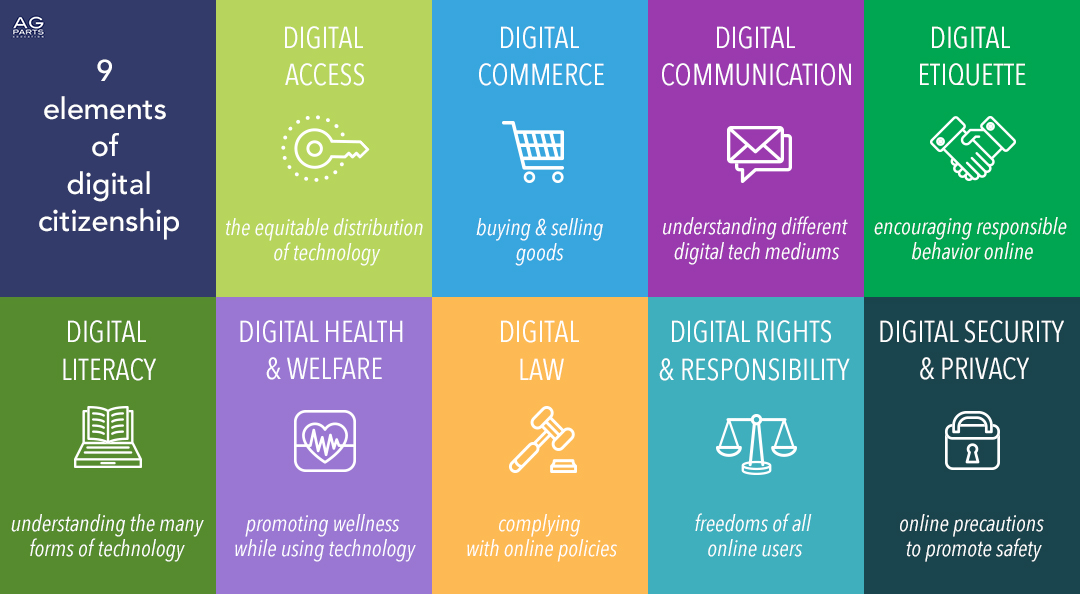Teaching Digital Citizenship
In my future classroom, I plan to approach digital citizenship with help from the Nine Elements of Digital Citizenship. I think in our new world of technology, digital citizenship plays a huge role in our daily lives. Digital access is one very important part of our digital citizenship, especially in our evolving digital era.
I plan to teach digital citizenship as an ongoing learning experience. As much as we can prepare and teach students about the internet and their own digital citizenship, most won’t really understand the cause unless they are in a situation that puts their image in jeopardy. As a future elementary teacher, teaching students when they are younger is important so they have early knowledge of the potential dangers that come with having digital identities. Digital access is a major part of digital citizenship, and it’s crucial to teach students that what gets posted on the internet is there forever and can be seen by anyone. Social interaction is just as dominant as public interaction is in our changing world, and students need to be aware that they aren’t just hiding behind a screen anymore. Digital etiquette also goes along with having a digital presence and interacting how you would in a public matter. This can be taught in schools by using cyberbullying as an example of why digital etiquette is so important. Lastly, digital fluency is something all students should have a sense of before joining the online world. Digital fluency can also tie in with digital etiquette, with students knowing how to interact respectfully. Students should be aware of the good and bad when learning fluency to ‘prepare’ them.
Digital health and welfare is also an important topic that can be easily brought up in the classroom. I remember in my earlier schooling learning about screen time in my health class. This can be a major area to cover for students that don’t have any restrictions on technology and the impact it can have, especially interfering with sleep at that age. Screen time is one way to introduce digital health as a familiar concept most students can navigate.
Jason Ohler shares,
“Schools should explicitly invite students to participate in such efforts for three reasons: students know far more about opportunities and perils in cyberspace than most adults do; their involvement gives adults and youth a chance to talk about a world in which the two groups rarely intersect; and, like adults, students will be more committed to living up to values they develop themselves than to values imposed on them by others.”
